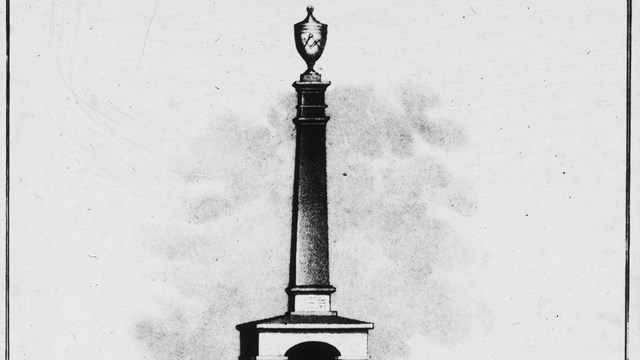Last updated: January 12, 2026
Article
Bunker Hill: Changing Memories

This article is part of the online feature "Bunker Hill Memory."
The dedication of Bunker Hill Monument took place on June 17, 1843, 68 years after the Battle. By this time, many of the Revolutionary generation had died, and with their passing went the living memory of the war. A new generation of Americans began to forge their own meanings and memories of the Monument and the battle which it commemorates.
Meanwhile, the United States experienced new social strains and political divisions. Tensions over the institution of slavery ultimately led to the US Civil War (1861-1865). Immigrants arrived in growing numbers and struggled to define their place in the nation. Women fought for increased rights, including their right to vote. Across the country, people began to consider what it means to be American.
In the midst of these tumultuous changes, the nation prepared to observe its centennial in 1876. This anniversary brought a renewed debate over the memory and meaning of the Revolution. The Bunker Hill Monument became a vehicle for these ongoing conversations.
Explore the voices of people who reimagined the meaning of the Bunker Hill Monument during the first fifty years of its completion. As you read, consider the tensions between different interpretations of the Battle and Monument. Whose perspectives do you see reflected in your own understanding of the Bunker Hill Monument?
The Liberator
-
Changing Memories: The Liberator Quote
Quote by G.B. Stebbins, from The Liberator, 1846.
-
Changing Memories: Irish Bostonians Quote
Quote from a Contributor to "The Pilot," "To Our Irish Societies," May 8, 1875.
-
Changing Memories: The Woman's Journal Quote
Quote from "Editorial Notes," The Woman's Journal, June 22, 1889.
-
Changing Memories: Lucy Stone Quote
Quote from Lucy Stone, "Our Bunker Hill Battle," The Woman's Journal, June 21, 1890.







